Your gut health should never be ignored. It not only can affect areas of your life like your mental and cognitive health, but recent studies have also found that it can affect things like your blood pressure levels.
Pursuing a healthy gut is possible, but it may require some alterations to your daily diet. For example, eating a lot of processed foods and drinking heavy amounts of alcohol have been known to alter your gut microbiome in a negative way. For example, research has found that diets heavy in processed foods can produce higher levels of harmful bacteria in the gut, which lead to more toxins in your body, and drinking heavier amounts of alcohol can also lead to more gut inflammation and damage to the gastrointestinal tract.
So when it comes to finding the right ways to eat for a healthy gut, how do you know what to choose? To find out, we asked some experts about their recommendations for eating habits that are good for your gut health. These eating habits can help improve digestion, as well as promote a healthier gut microbiome by fighting off harmful bacteria with an increased production of "good" gut bacteria.
Eat fermented foods
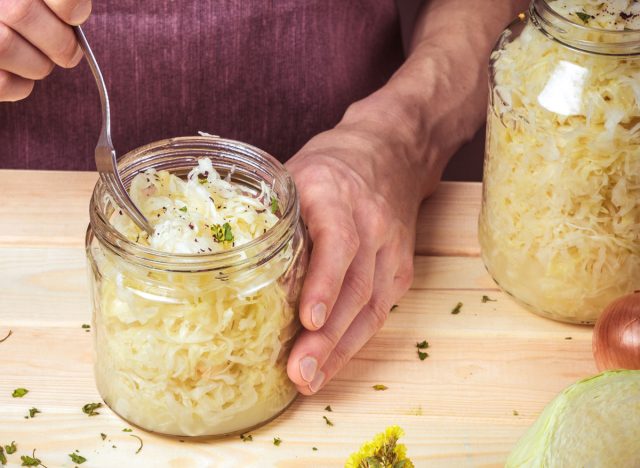
According to our experts, incorporating fermented foods into your diet can significantly help your gut health. "You should include one fermented food in your diet every day, which can be plain whole milk yogurt, miso, or a fermented vegetable such as real sauerkraut," says Marie Ruggles, MS, RD, author of the award-winning book, Optimize Your Immune System: Create Health & Resilience with a Kitchen Pharmacy.
One 2021 study found that a diet high in fermented foods, like yogurt and kimchi, increases microbiome diversity, lowers inflammation, and improves immune response.
Enjoy yogurt for breakfast or as a snack

Enjoying yogurt for breakfast, or having it as a midday snack, can be a great way to care for your gut health.
"Yogurt is a fermented food and contains probiotic cultures that can strengthen the gut," says Lisa Young, Ph.D., RDN, author of Finally Full, Finally Slim and member of our Expert Medical Board. "Some Greek yogurts also contain added probiotics like Lactobacillus acidophilus and Lactobacillus casei, which can help increase good bacteria in the digestive tract."
"Yogurt is also a fantastic base for other high-fiber, gut-friendly foods like berries, nuts and seeds," adds Amy Goodson, MS, RD, CSSD, LD, author of The Sports Nutrition Playbook and member of our Expert Medical Board.
Incorporate more oats
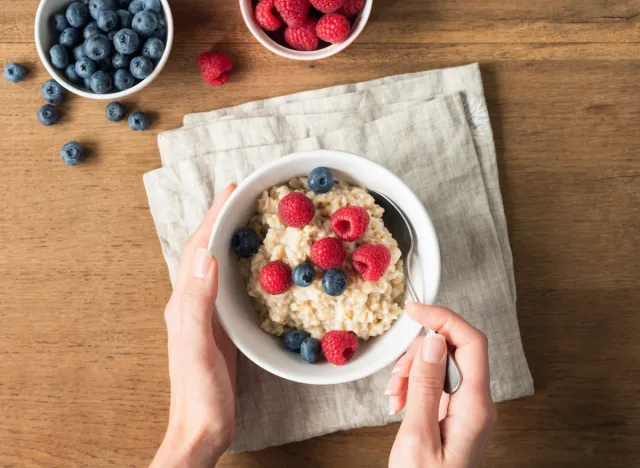
Eating more oats can help your gut health because "oats are a prebiotic food, which feed the good probiotic bacteria in your gut," says Goodson. "Oats also specifically contain beta-glucan fiber, which has been linked to healthy gut bacteria."
And if you're looking for ways to eat more oats, you don't have to limit yourself to just oatmeal. "Oats are also extremely versatile," says Goodson. "You can use them to make oatmeal (like I do every morning), use them as base for energy bites to make a nutrient-rich snack, and even grind them up to make flour, which can be used in a variety of recipes."
Eat plenty of beans & legumes
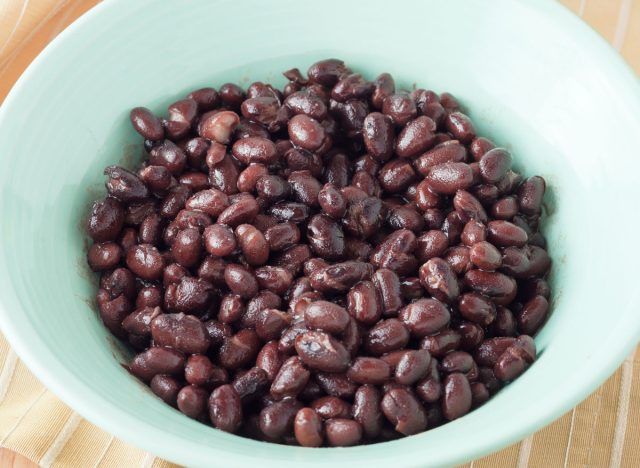
Beans and legumes are great additions to your diet when you want a healthy gut because according to Laura M. Ali, RDN, a culinary nutritionist based in Pittsburgh, they act as prebiotics and provide food for the probiotics inside your gut.
"Chickpeas, black beans, kidney beans, and lentils are excellent sources of fiber that work throughout your gastrointestinal tract and help with digestion by working together with the probiotics," says Ali.
When you're not getting enough fiber in your daily diet, you may experience things like bloating, increased hunger, and stomach discomfort. This may mean it's time to implement more legumes or beans into your meals.
Stock up on berries
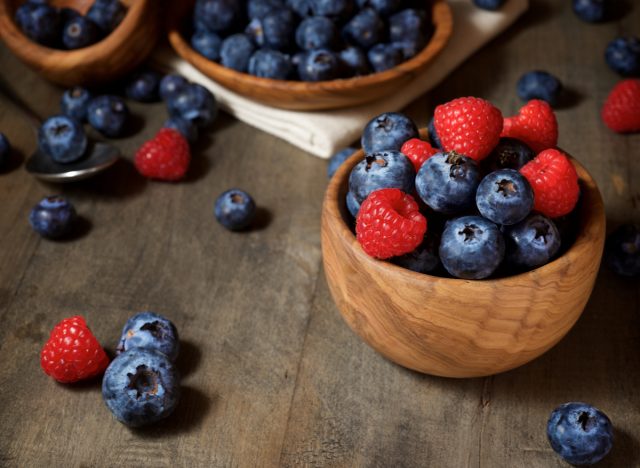
Along with beans, Ali highly suggests incorporating more berries into your diet as well.
"Not only are they a good source of fiber, but they are loaded with antioxidants and vitamin C, which helps feed those healthy bacteria and reduce inflammation in our GI tract. You can mix them up with some Kefir in a smoothie for breakfast, and you are off to a great start for the day," says Ali.
Diversify your food
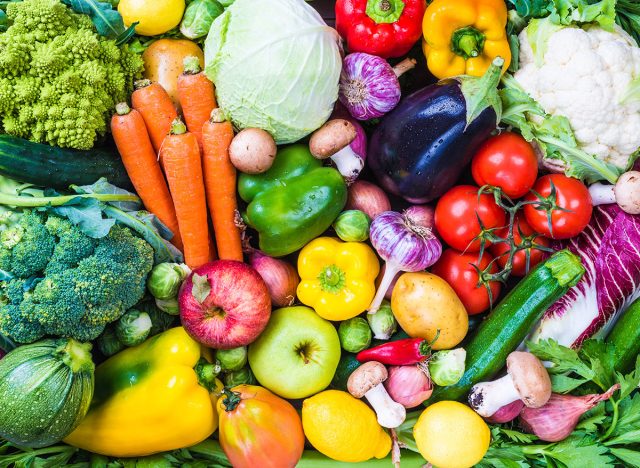
Believe it or not, your gut can actually be negatively impacted by eating too much of the same foods and not allowing food diversity into your meals. Research shows that the wider the range of plants that we eat, the more diverse our gut bacteria will be, which is a marker of good gut health.
"Make it a habit to experiment with new foods and include a wider variety of plant foods in your diet," says Ruggles, "Because the unique compounds in each food deliver fibers that feed different species of beneficial bacteria that already live in your gut, and a diverse population of bacteria strengthens your immune system."
When it comes to caring for your gut, making sure you're eating enough fiber, drinking enough water, and getting plenty of rest are all crucial to ensuring a healthy gut microbiome and a happy tummy.
No comments:
Post a Comment